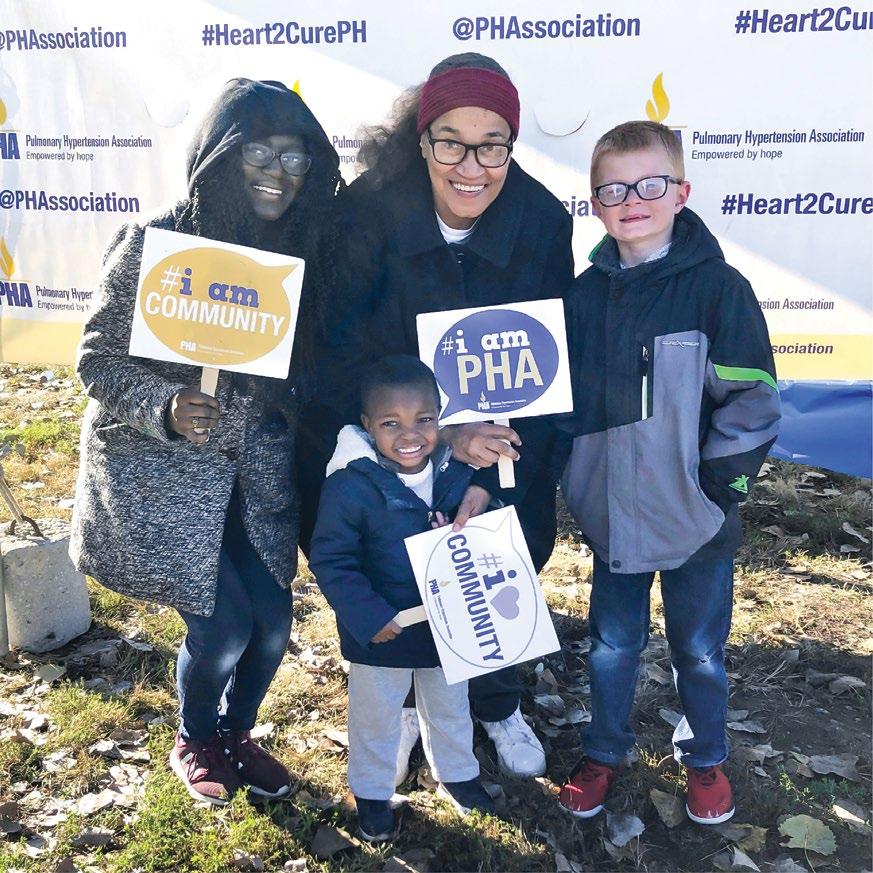
1 minute read
FUNDRAISING FAMILY CELEBRATES LIFE-SAVING ADVANCEMENTS
Gale Perkins never expected to have the family she dreamed of. But treatment advancements since her 1983 pulmonary hypertension (PH) diagnosis significantly improved her health, allowing her to adopt.
“I am living my 20s in my 50s, raising four kids,” says Gale, who had just finished college when she was diagnosed.
Despite doctors’ warnings, she didn’t believe she wouldn’t live to 40. But she feared they might be right when she became severely ill in the 1990s and couldn’t walk from room to room. When she was evaluated for a heart-lung transplant, she learned her PH was related to congenital heart disease.
After surgery to repair a hole in her heart and widen her arteries. she felt much better and no longer needed oxygen therapy. She started making plans for the future and asked her cardiologist whether she was well enough to adopt.
“I’m grateful that I got a chance later in life to do it,” she says. “It didn’t occur to me that I was ‘too old.’ My kids needed a mom, and I needed kids, and it all worked out.” Gale has been involved in the Pulmonary Hypertension Association (PHA) since the late 1990s and is a long-time fundraiser.
A member of the Sustainers Circle, PHA’s monthly giving club, Gale and her children also participate each year in the PHA Kansas City O2reathe Walk.
During the pandemic, they participated in a virtual version of the fundraiser. “We walked around the neighborhood with the dog. Although it wasn’t as fun walking with the community, it gave us a bit of normalcy. The pandemic didn’t stop us from what we like to do — celebrating what it’s taken to get this far.”
Participating in the annual walk helps Gale’s children understand how the PHA community has helped their mom and why it’s important for their family to help others. Gale wants to ensure PHA has resources to educate health care professionals, fund research and support patients and families.
“When I was young, doctors knew my EKG was really weird, but they didn’t dig any further. Education is so important to identifying and treating PH. If PH is found soon enough, more lives can be saved.”










